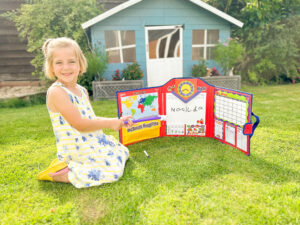Good grammar is an essential skill that helps children communicate clearly and confidently, both in school and everyday life. By supporting your child in developing strong grammar skills early on, you can give them a solid foundation for reading, writing, and self-expression. Here are some practical ways to improve your child’s grammar at home, inspired by the practices of this private school in North Londonprivate school in North London.
*This is a collaborative post
Table of Contents
Encourage Regular Reading
One of the best ways for children to absorb grammar naturally is through regular reading. When children read books, stories, and poems, they are exposed to correct sentence structures, punctuation, and vocabulary in context. Encourage your child to read a variety of texts – from picture books and novels to magazines and newspapers – so they become familiar with different writing styles.
Tip: Reading aloud together not only helps with fluency and comprehension but also allows you to pause and point out how sentences are formed.
Make Writing Fun
Writing gives children the chance to practise grammar in a hands-on way. Set aside time for creative writing activities, such as keeping a diary, writing short stories, or even composing letters to family members. While they write, gently highlight areas where they could improve grammar, such as subject-verb agreement or sentence length.
Keep the experience positive by focusing on encouragement rather than correction. You could also create fun challenges, like rewriting a favourite story with a twist or inventing new endings for classic tales.
Play Grammar Games
Grammar doesn’t have to be dry or boring – there are plenty of games and activities that make it engaging. Board games, flashcards, and online apps can help children practise grammar rules in a playful way. For younger children, simple activities like matching verbs with their correct tense or sorting nouns and adjectives can be effective.
For older children, try sentence-building games or online quizzes that test their knowledge in a competitive but light-hearted way.
Model Good Grammar in Conversation
Children often imitate the way adults speak. By modelling good grammar in your everyday conversations, you give them a strong example to follow. Try to speak in full sentences, avoid slang when appropriate, and use correct tenses naturally in conversation.
If your child makes a grammatical mistake while speaking, avoid interrupting them mid-sentence. Instead, repeat their phrase back to them with the correction subtly included. For example, if they say, “She don’t like it,” you could reply, “Yes, she doesn’t like it, does she?”
Focus on One Rule at a Time
Grammar has many rules, and trying to tackle them all at once can feel overwhelming. Break the process down by focusing on one area at a time. For example, you might spend a week looking at apostrophes, then move on to capital letters the next week. This approach helps children build confidence without feeling overloaded.
Praise Progress
Finally, remember to celebrate your child’s efforts. Mastering grammar is a gradual process, and mistakes are a normal part of learning. Offer praise when they get something right and encouragement when they struggle. By creating a supportive environment, you’ll help your child feel motivated to keep improving.
In summary: Improving your child’s grammar doesn’t have to be stressful. By weaving reading, writing, conversation, and games into their daily routine, you can make learning grammar enjoyable and rewarding – setting them up for success in school and beyond.








